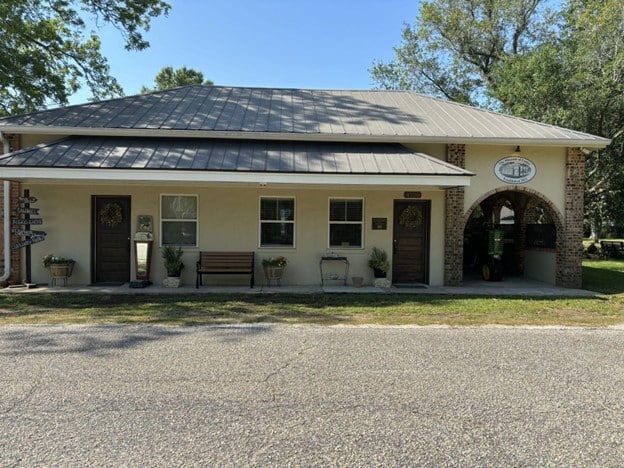Tackling a home renovation, spring cleaning, or a large-scale commercial project? The right dumpster rental and waste management strategy can save you time, money, and headaches. This guide will equip you with the knowledge to navigate the world of waste disposal efficiently and responsibly.
Understanding Dumpster Rental
What is Dumpster Rental?
Dumpster rental is a convenient waste removal service providing temporary, large-capacity containers for disposing of various materials. Whether you're dealing with construction debris, household junk, or commercial waste, renting a dumpster offers a streamlined solution for bulk waste removal. This process involves selecting a dumpster size appropriate to your needs, scheduling delivery and pickup, and responsibly filling the dumpster according to local regulations and the rental agreement. Understanding dumpster rental options enables you to efficiently manage waste removal for any project. Choosing the right waste disposal method is crucial for a successful project.
Types of Dumpsters Available
Several dumpster types cater to diverse waste management needs. Roll-off dumpsters, typically used for construction and demolition projects, are large containers lifted and transported by specialized trucks. Front-load dumpsters, frequently seen in commercial settings, are designed for mechanical loading by garbage trucks. Construction dumpsters often feature reinforced construction to withstand heavy debris. The selection depends on project size, waste type, and accessibility. Consider the volume of waste generated to determine suitable size and type for smooth waste removal. Understanding the different dumpster types available ensures you choose the right one for your project.
How to Choose the Right Dumpster Rental Service
Factors to Consider
Choosing a reliable dumpster rental service involves careful consideration of several key factors. Price comparison is essential, but don't solely focus on the cheapest option; compare services based on pricing structures and hidden fees. Ensure the service area covers your location to avoid unnecessary transportation costs. Reading customer reviews and ratings offers valuable insight into a provider's reliability and customer service quality. A reputable company prioritizes customer satisfaction and efficient waste removal processes. Checking their license and insurance is also critical. Consider factors like delivery speed, flexibility, and customer support when deciding on a provider.
Questions to Ask a Dumpster Rental Provider
Before committing, ask crucial questions to avoid unexpected expenses or complications. Inquire about rental terms, including the rental duration, delivery and pickup schedules, and potential late fees. Clarify weight limits to prevent exceeding the container's capacity and incurring additional charges. Confirm what services are included—for example, whether permits are handled by the provider. Understanding the specifics of the rental agreement ensures a smooth and cost-effective waste removal process. Proactive communication with the provider prevents potential issues and ensures a successful project.

Waste Management Services Explained
Types of Waste Management Services
Waste management encompasses a wide range of services, from residential waste collection to specialized handling of hazardous materials. Residential waste collection typically involves curbside pickup of household trash and recyclables. Commercial waste services cater to businesses, managing larger volumes https://writeablog.net/arnhedwqpe/ultimate-guide-to-dumpster-rental-services-in-2025 and potentially specialized waste streams. Hazardous waste disposal requires specialized handling and disposal, adhering to strict environmental regulations. Understanding different waste management service options is key to effective and compliant waste disposal. These services ensure responsible waste handling while protecting the environment.
The Importance of Recycling Programs
Recycling programs play a crucial role in reducing landfill waste and conserving natural resources. Recycling benefits the environment by minimizing the need for new materials and reducing pollution. Recycling statistics consistently show the significant impact of effective recycling programs on waste reduction. Participating in robust recycling programs contributes to a sustainable future by reducing the strain on landfills and promoting responsible waste management. Choose a waste management provider that supports robust recycling initiatives.
Eco-Friendly Dumpster Rental Options
Sustainable Waste Management Practices
Sustainable waste management prioritizes minimizing waste generation, maximizing recycling, and employing environmentally friendly disposal methods. Landfill diversion strategies aim to reduce the amount of waste sent to landfills. Waste reduction initiatives focus on minimizing the amount of waste generated in the first place. Compost facilities provide an alternative to landfills, transforming organic waste into valuable compost. These practices contribute to a more sustainable and environmentally responsible approach to waste management. They limit environmental impact and promote resource conservation.
Resources for Green Waste Disposal
Several resources support eco-friendly waste disposal. Organic waste disposal options often include composting facilities or programs that handle yard waste and food scraps. E-waste recycling programs focus on responsibly managing electronic waste, preventing harmful substances from entering landfills. Zero waste initiatives promote the elimination of waste sent to landfills through a combination of reduction, reuse, recycling, and composting. Accessing and utilizing these resources ensures your project adheres to eco-conscious practices.
Cost of Dumpster Rental and Waste Management Services
Average Pricing Breakdown
The cost of dumpster rental and waste management varies based on factors like dumpster size, rental duration, waste type, and location. Dumpster rental prices depend on various elements, including location, size, and rental duration. Hidden fees, such as disposal fees or fuel surcharges, should be clarified upfront to avoid unexpected costs. Cost-saving tips include optimizing dumpster size selection and choosing a provider with transparent pricing policies. Careful planning and selection of a provider prevent unnecessary expenses.
Insurance and Permit Requirements
Understanding insurance and permit requirements is vital to avoid legal complications. Dumpster rental permits may be necessary depending on your location and project scope, while insurance protects against potential liabilities. Dumpster rental permits and insurance requirements vary based on location and project type. Compliance prevents legal issues and protects all parties involved. Contact your local authorities or the rental provider for precise requirements related to permits and insurance for your specific project.

Frequently Asked Questions
General Dumpster Rental FAQs
What items are not allowed in a dumpster? Hazardous materials, such as chemicals, batteries, and medical waste, are typically prohibited. Always check with your provider for a complete list of restricted items.How long can I keep a dumpster rental? Rental durations vary; standard rentals range from a few days to several weeks. Inquire with the provider for specific options and associated costs.
Can I rent a dumpster for a small home project? Yes, dumpsters are available in various sizes to suit projects of all scales, including small home renovations or clean-outs.
What happens to the trash after it's picked up? Waste is typically transported to a landfill or processing facility, depending on the type of waste and local regulations. Some providers also offer recycling options.
This comprehensive guide empowers you to make informed decisions regarding dumpster rentals and waste management services. Remember to choose a reputable provider, plan ahead, and prioritize environmentally conscious disposal practices. Contact a local dumpster rental company today to get started on your next project!